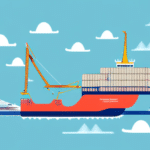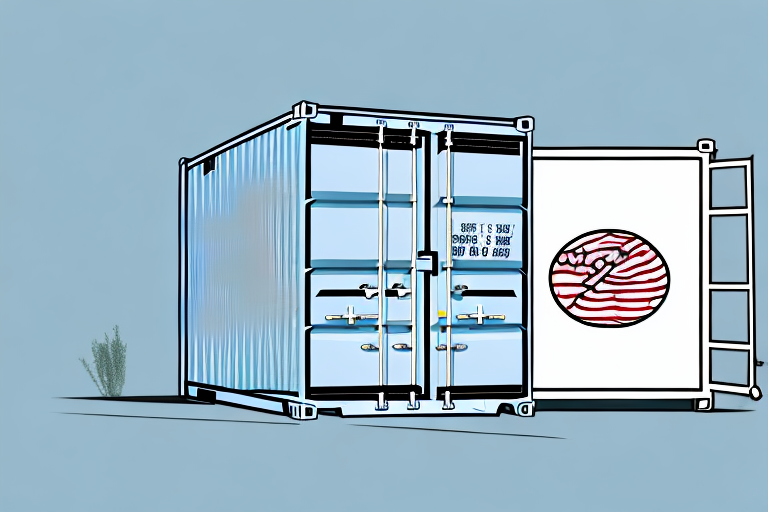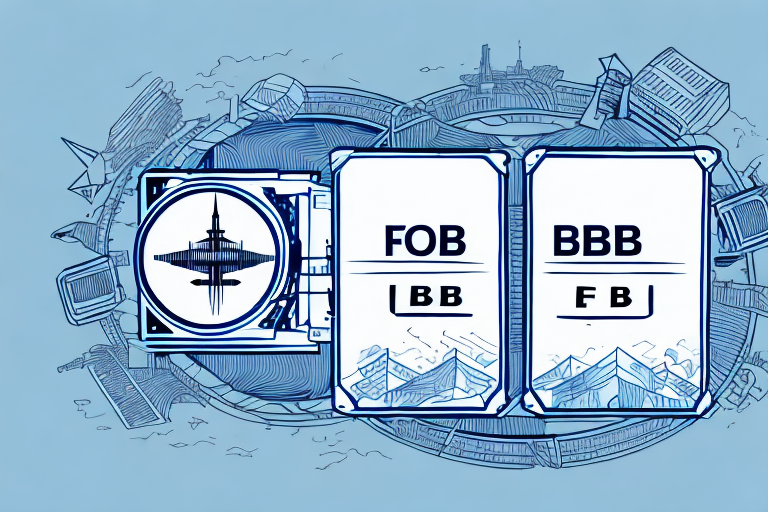Understanding FOB Shipping Point Freight Collect
In the world of international trade, understanding specific terms that govern shipping and logistics is essential. One such term frequently used in shipping contracts is FOB Shipping Point Freight Collect. This term refers to a type of shipping contract where the buyer is responsible for paying shipping costs and assumes ownership of goods as soon as they leave the seller's warehouse or loading dock. This article delves into the intricacies of FOB Shipping Point Freight Collect, its significance in the shipping industry, and provides actionable insights for businesses involved in international trade.
What is FOB Shipping Point Freight Collect?
FOB (Free on Board) Shipping Point Freight Collect is a shipping agreement wherein the buyer takes ownership and responsibility for goods once they depart from the seller's warehouse or loading dock. Under this agreement:
- Seller's Responsibilities: Loading and preparing goods for shipment.
- Buyer's Responsibilities: Transportation costs, insurance, and any other expenses related to shipping the goods to their final destination.
Contrastingly, FOB Destination requires the seller to maintain responsibility for the goods until they reach the buyer's specified location. Understanding these distinctions is crucial for both buyers and sellers to ensure seamless transactions and to allocate responsibilities appropriately.
Importance of FOB Shipping Point Freight Collect in the Shipping Industry
FOB Shipping Point Freight Collect plays a pivotal role in the shipping industry by clearly defining the responsibilities of both buyers and sellers in a shipping transaction. This clarity helps in:
- Reducing Confusion: Clear allocation of costs and risks prevents disputes and shipment delays.
- Cost Efficiency: Both parties can negotiate better rates with carriers, avoiding unexpected charges.
- Operational Efficiency: Streamlined processes lead to more cost-effective shipping practices, essential in today’s competitive market.
According to the World Trading Report, businesses that effectively manage their shipping terms experience a 15% reduction in logistics costs annually.
Key Differences Between FOB Shipping Point and FOB Destination
Understanding the differences between FOB Shipping Point and FOB Destination is critical for determining risk and cost allocation:
Ownership and Risk Transfer
- FOB Shipping Point: Ownership and risk transfer to the buyer once goods leave the seller's premises.
- FOB Destination: Ownership and risk remain with the seller until the goods reach the buyer's location.
Cost Allocation
- FOB Shipping Point: Buyer covers all transportation and associated costs.
- FOB Destination: Seller covers transportation and related expenses.
Title Transfer
- FOB Shipping Point: Title transfers at the point of shipment.
- FOB Destination: Title transfers upon delivery.
Choosing between these two terms impacts not only the cost structure but also the control over the shipping process and the management of risks.
Advantages and Disadvantages of FOB Shipping Point Freight Collect
Advantages
- Cost Savings: Sellers reduce their transportation expenses.
- Control: Buyers have greater control over the shipping process, including carrier selection and insurance.
- Faster Delivery: Buyers can arrange shipping based on their schedules, potentially leading to quicker transit times.
Disadvantages
- Risk Assumption: Buyers bear all risks related to loss or damage during transit.
- Cost Estimation Challenges: Buyers may face difficulties in accurately predicting shipping costs, leading to budgeting issues.
- Access to Rates: Buyers might not have access to the same discounted shipping rates as sellers, resulting in higher overall costs.
Businesses must weigh these advantages and disadvantages to determine if FOB Shipping Point Freight Collect aligns with their logistical and financial strategies.
Factors to Consider Before Choosing FOB Shipping Point Freight Collect
Before opting for FOB Shipping Point Freight Collect, consider the following factors:
- Value of Goods: High-value items may require comprehensive insurance coverage.
- Destination: Consider the reliability and infrastructure of the destination's transportation network.
- Shipping Route: Evaluate potential risks along the shipping route, including weather and geopolitical factors.
- Transportation Mode: Determine the most suitable mode (air, sea, land) based on the nature of the goods.
- Legal Implications: Ensure compliance with international trade laws and understand contractual obligations.
Assessing these factors helps in making an informed decision that minimizes risks and optimizes shipping efficiency.
Best Practices for Managing FOB Shipping Point Freight Collect
Clear Communication
Ensure that all parties understand their responsibilities. Clear communication channels prevent misunderstandings and facilitate smooth transactions.
Proper Documentation
Maintain accurate and complete documentation, including bills of lading, customs forms, and insurance certificates. Proper documentation is essential for legal compliance and dispute resolution.
Partner with Reliable Carriers
Select reputable carriers to mitigate risks associated with shipping, such as delays and damages. Reliable carriers contribute to timely deliveries and the integrity of goods.
Utilize Technology
Adopt shipping management software to track shipments in real-time, manage documentation, and streamline communication between parties.
Common Challenges and Solutions in Implementing FOB Shipping Point Freight Collect
Documentation Errors
Challenge: Incorrect or incomplete documentation can lead to delays and legal issues.
Solution: Implement checks and balances to ensure all documents are accurately prepared and reviewed before shipment.
Communication Barriers
Challenge: Language and cultural differences can hinder effective communication between international parties.
Solution: Utilize multilingual teams or translation services and establish clear communication protocols.
Cost Management
Challenge: Unforeseen shipping costs can impact budgeting and profitability.
Solution: Conduct thorough cost analysis and negotiate favorable rates with carriers to minimize unexpected expenses.
Resolving Disputes Related to FOB Shipping Point Freight Collect
Disputes may arise regarding responsibilities, costs, or damage to goods under FOB Shipping Point Freight Collect agreements. To resolve such disputes:
- Arbitration: Engage an impartial third party to facilitate a binding resolution.
- Mediation: Utilize a mediator to help both parties reach a mutually agreeable solution.
- Legal Action: As a last resort, pursue legal action to enforce contractual obligations.
Proactive dispute resolution strategies can help maintain business relationships and prevent prolonged conflicts.
Future Trends and Developments in the FOB Shipping Point Freight Collect Industry
The shipping industry is evolving with advancements in technology and shifts towards sustainable practices. Future trends in FOB Shipping Point Freight Collect include:
- Digital Transformation: Increased use of digital documentation and blockchain technology to enhance transparency and reduce errors.
- Eco-Friendly Shipping: Adoption of sustainable shipping practices, such as utilizing renewable energy sources and optimizing shipping routes to reduce carbon footprints.
- Automation and AI: Implementation of artificial intelligence and automation to streamline logistics operations and improve efficiency.
Staying abreast of these trends enables businesses to adapt and remain competitive in the dynamic shipping landscape.
Case Studies on Successful Implementation of FOB Shipping Point Freight Collect
Numerous businesses have successfully implemented FOB Shipping Point Freight Collect, resulting in cost savings and enhanced operational control. For instance:
International Manufacturer
A leading electronics manufacturer adopted FOB Shipping Point Freight Collect to ship products to global markets. By assuming responsibility for shipping, the manufacturer gained better control over logistics, negotiated competitive shipping rates, and reduced overall transportation costs by 12%.
Retail Company Expansion
A retail company expanding into new international markets utilized FOB Shipping Point Freight Collect to manage shipments. This approach allowed the company to select reliable local carriers, ensuring timely deliveries and improving customer satisfaction.
These case studies demonstrate the practical benefits of implementing FOB Shipping Point Freight Collect, highlighting its potential to enhance efficiency and reduce costs in international trade operations.
Conclusion
FOB Shipping Point Freight Collect is a crucial shipping agreement that delineates the responsibilities of buyers and sellers in international trade. By understanding its mechanics, advantages, and challenges, businesses can make informed decisions that optimize their shipping processes and mitigate risks. As the shipping industry continues to evolve with technological advancements and sustainable practices, FOB Shipping Point Freight Collect remains a foundational element in facilitating smooth and cost-effective global trade.








